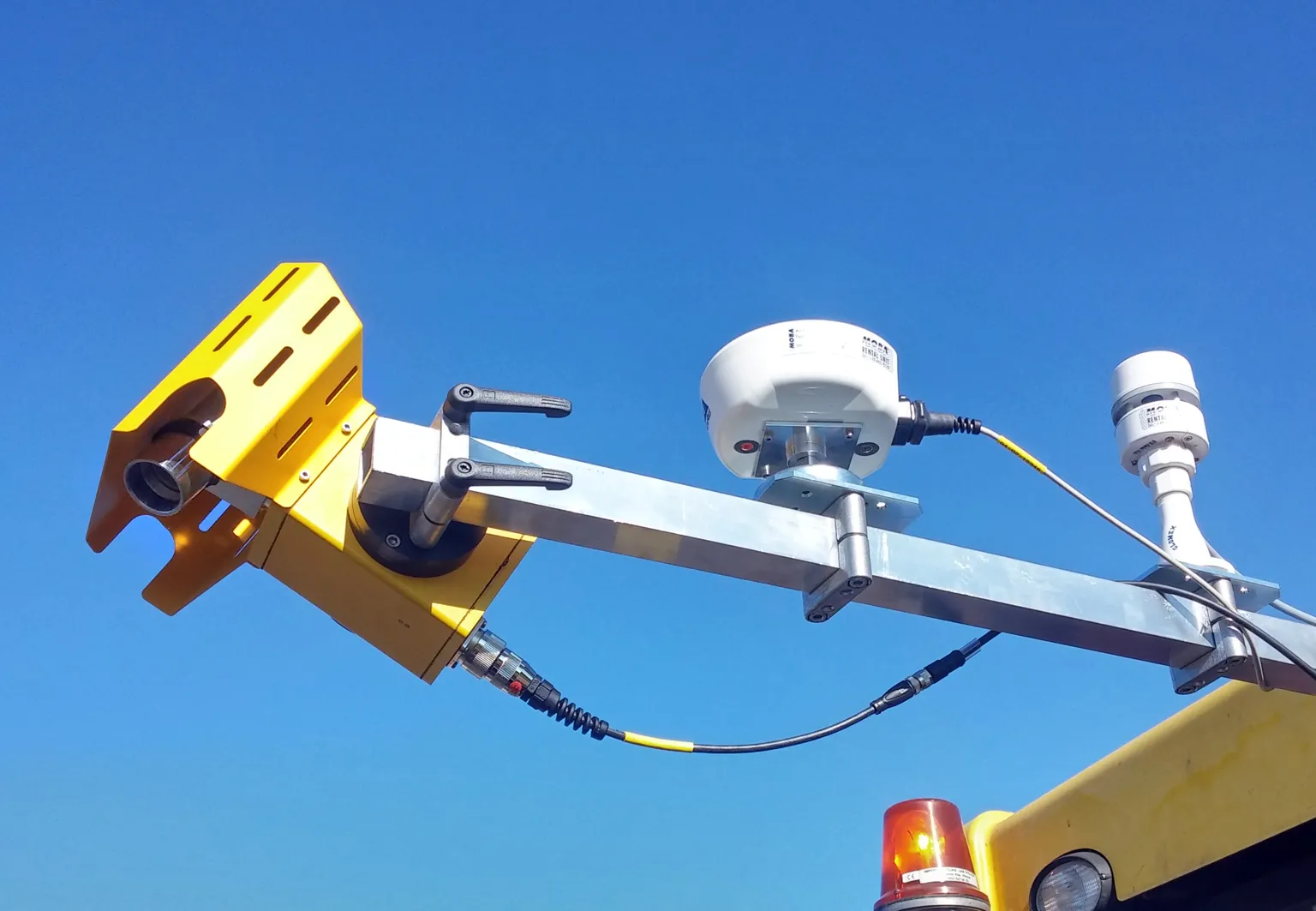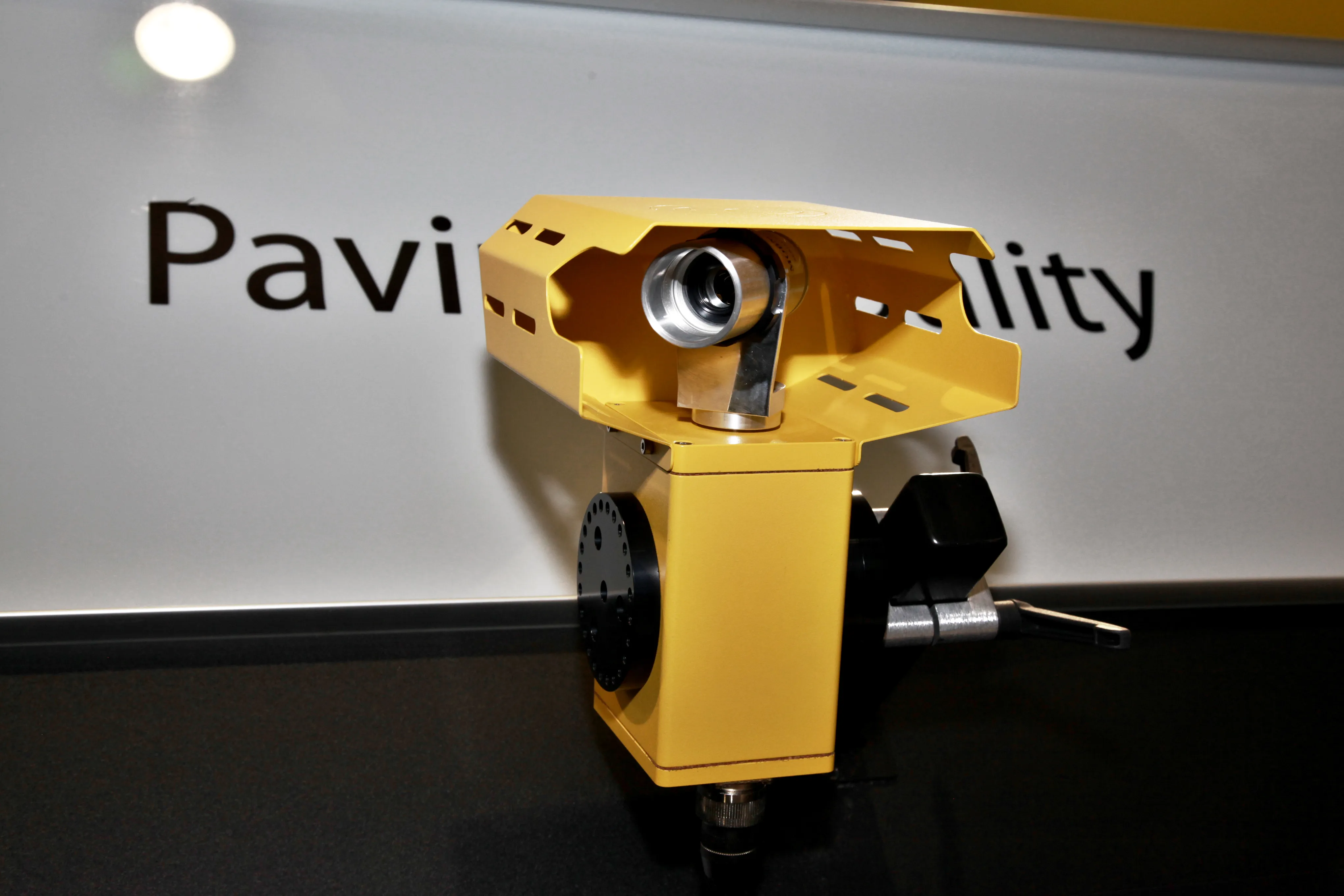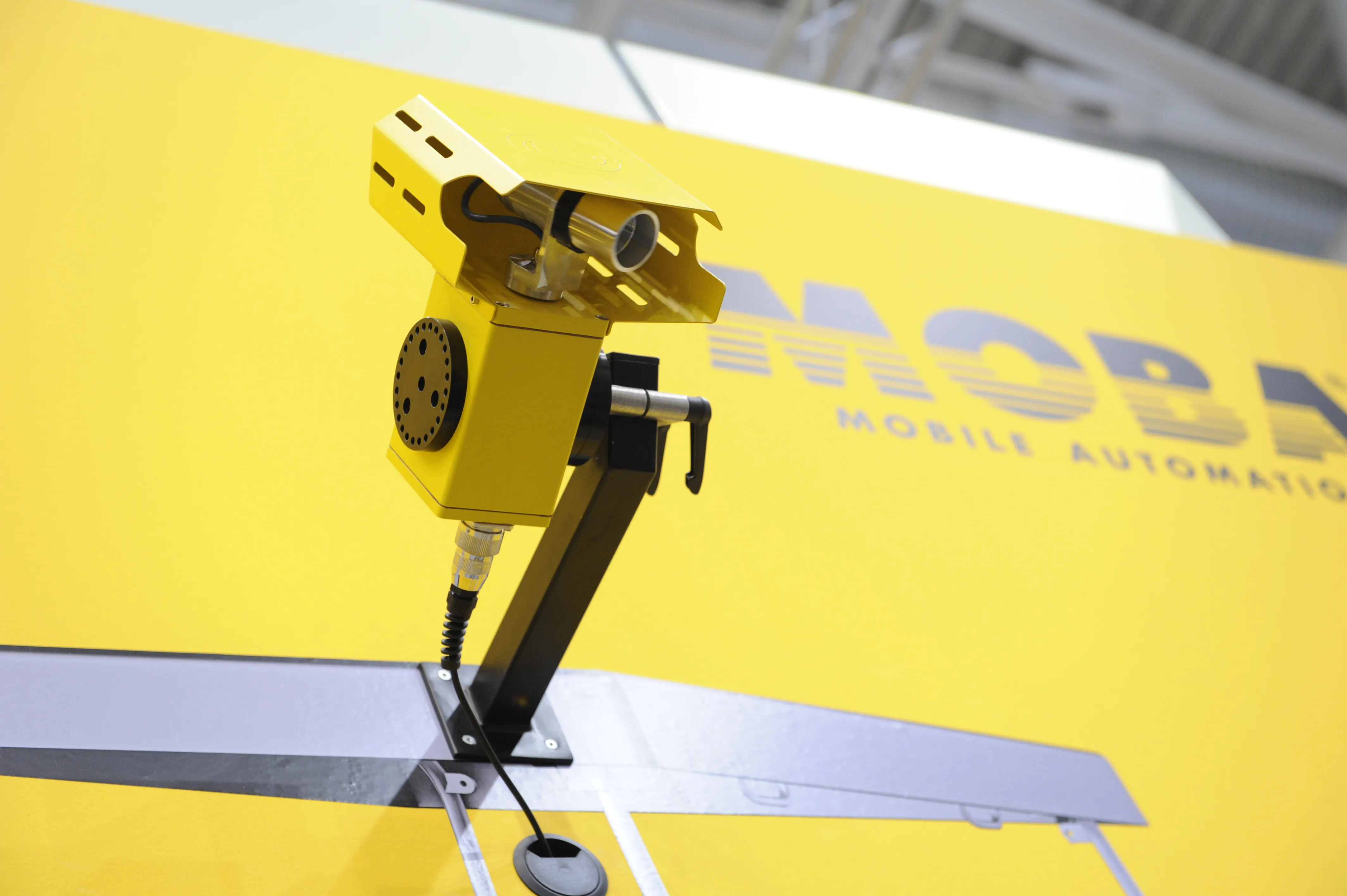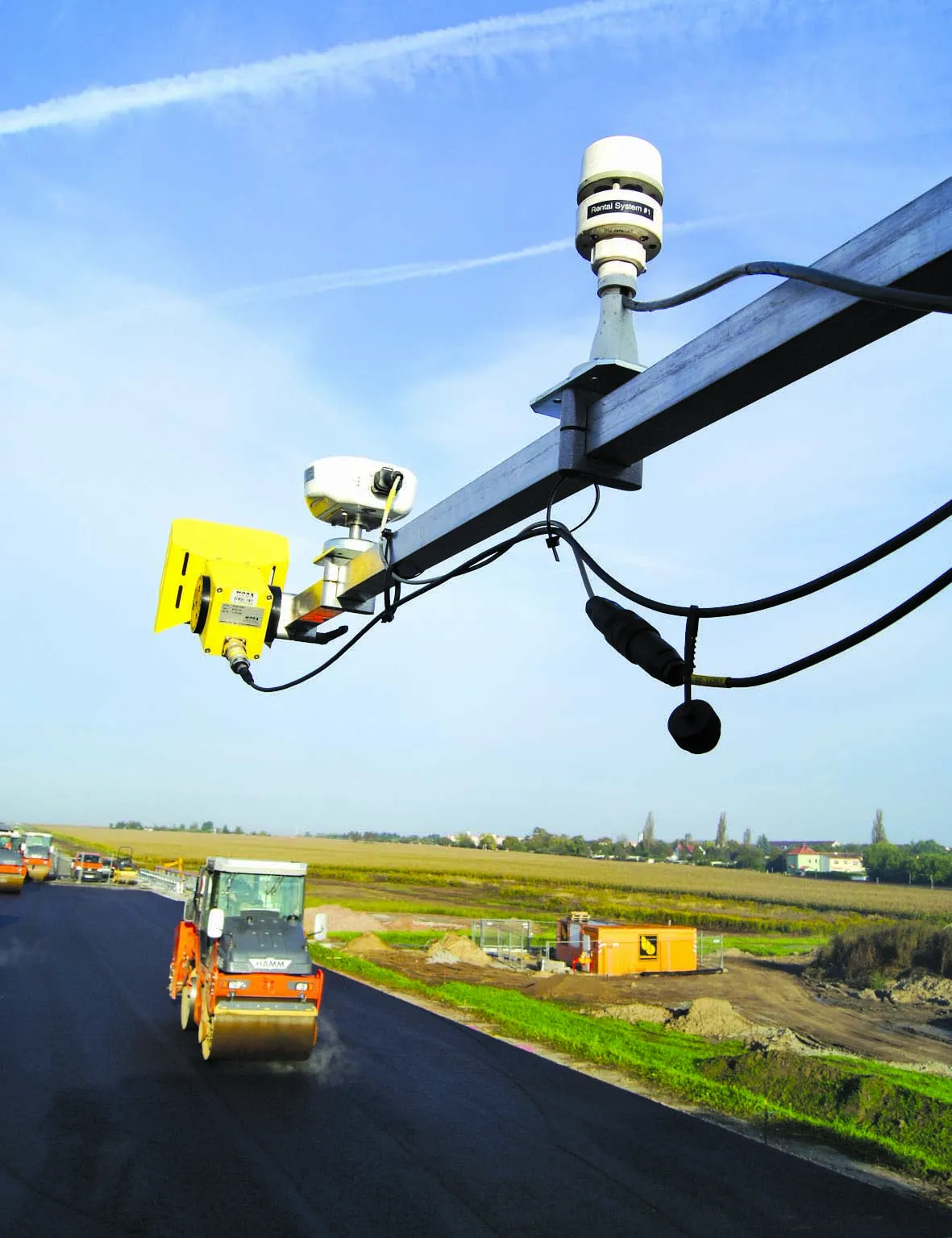
The advanced PAVE-IR system from
The system allows the paver operator to see the temperature gradient across the mat and identify and cold spots that may cause further trouble. Areas falling in temperature can also be compacted first, so as to ensure they are rolled out while still in the workable heat zone. Problems with the mat can also be identified and dealt with early on.
The system uses an intelligent temperature scanner over the entire paving width of up to 12m to measure the temperature of the asphalt at up to 61 measurement points. The temperature profile is shown in real-time on a display. As a result, the operator can react at any time if irregularities occur.
In addition, the profile is stored with the GPS position data and transferred to a USB stick. Using a software, the contractor can evaluate and document the data in the office, can use it for planning subsequent work and to document the quality of his or her work. At the same time, this analysis can be used to better understand the whole process of road construction and to improve the quality in the long term.








